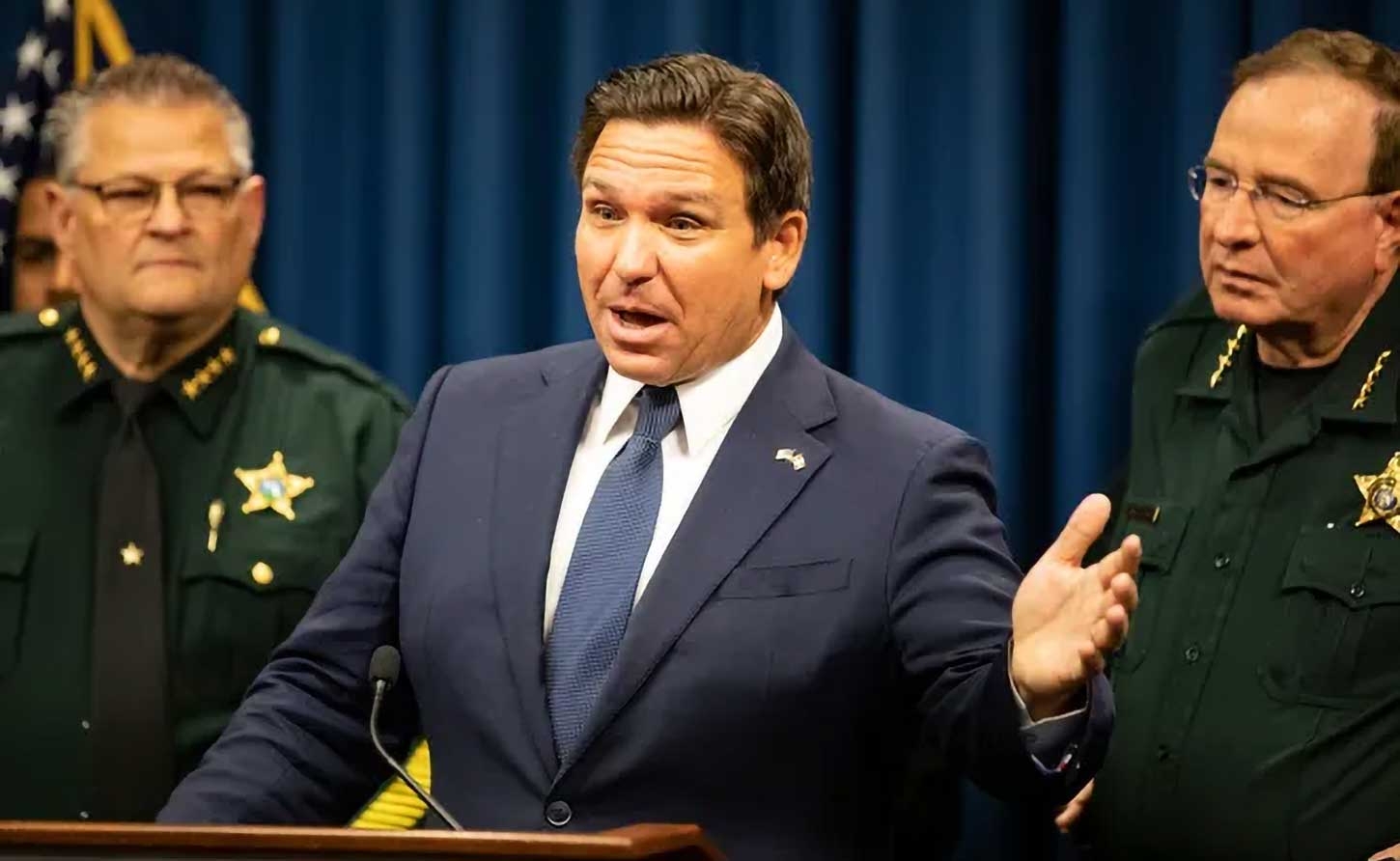FLORIDA | Gov. Ron DeSantis Targets Immigrant Remittances

MONTEGO BAY, Jamaica, January 28, 2025 - In a state where one in five residents is an immigrant, with large communities from Haiti, Colombia, Jamaica, and other Caribbean nations, Florida Governor Ron DeSantis is pushing for sweeping new measures that could cut off vital financial lifelines for immigrant families and dramatically expand state powers to detain and deport those who entered the country illegally.
The proposed crackdown would particularly impact communities from Haiti (8 percent of the state's immigrants), Colombia (6 percent), Mexico (6 percent), and Jamaica (5 percent), along with the largest group, Cuban immigrants, who make up 23 percent of the state's foreign-born population.
At the heart of DeSantis' controversial proposals is a plan to require proof of legal immigration status before anyone can send money abroad – a move that could effectively bar undocumented immigrants from sending remittances to support family members in their home countries.
The measure targets what DeSantis calls a "huge deterrent," taking aim at immigrants working "menial jobs at higher wages" to support relatives abroad.
The governor's broad legislative agenda, which he wants state lawmakers to take up in a special session, would also make it a state crime to enter the U.S. illegally and require counties and cities to participate in federal deportation programs.
In an unprecedented step, DeSantis is seeking authority to suspend elected officials who don't comply with these mandates.
"State and local officials in Florida must help the Trump administration enforce our nation's immigration laws," DeSantis declared, signaling a hardline approach that has immigrant advocates deeply concerned.
The proposals are raising alarms in Florida's diverse communities, where immigrants comprise more than a quarter of the state's workforce.
Tessa Petit, who leads the Florida Immigrant Coalition, warns that empowering local law enforcement with immigration authority would deepen existing divisions.
"People are going to be afraid of police officers," Petit says. "People are going to be afraid to report crimes. That's going to create a very strong divide between law enforcement and community members."
She argues that blocking remittances could have far-reaching consequences beyond Florida's borders, potentially destabilizing countries like Haiti and Nicaragua that heavily depend on money sent from the U.S., ultimately driving up migration.
Under current federal law, illegal entry carries relatively modest penalties – a fine between $50 and $250 and up to six months in jail. But DeSantis wants to create parallel state criminal charges, viewing it as a tool for proactive enforcement.
"You say deport the criminals. If they are here, in a gang and haven't committed a crime yet, are you supposed to wait until someone is victimized?" he argued. "Your illegal entry was a crime. We get that on the books and then we send you back home."
The governor's enforcement strategy includes appointing state immigration officers to coordinate with federal authorities, expanding detention powers for local law enforcement, and establishing a presumption that undocumented individuals facing criminal charges are flight risks ineligible for bail.
He pointed to the state's controversial migrant transportation program – which flew 50 migrants to Martha's Vineyard and remains embroiled in litigation – as an example of Florida taking immigration matters into its own hands.
DeSantis is also pushing to tighten identification requirements across multiple fronts. His proposal would mandate sworn citizenship affirmations for voter registration with enhanced penalties for false statements.
In a similar vein, he wants to expand E-verify requirements to money transfer companies, forcing them to confirm citizenship status before processing transactions.
These sweeping proposals would impact a state that has long been shaped by immigration, particularly from the Caribbean.
Recent data shows that immigrants make up more than a quarter of Florida's labor force and have become deeply woven into the state's economic and social fabric.
Of the 4.5 million immigrants who called Florida home in 2018, nearly 60 percent had become naturalized U.S. citizens, with hundreds of thousands more eligible for naturalization.
Contrary to common narratives about immigrant integration, nearly three-quarters of Florida's immigrants report speaking English "well" or "very well."
Their educational attainment spans the spectrum, with 29 percent holding college degrees while 20 percent have not completed high school – a distribution that mirrors many demographic patterns in the broader population.
Some of DeSantis' proposals echo measures attempted in other Republican-led states, several of which have faced legal challenges.
Meanwhile, Democratic-led states have moved in the opposite direction, going to court to block federal actions like the Trump administration's attempted end to birthright citizenship.
As Florida moves to implement these new restrictions, the state's unique demographic makeup ensures that their impact will reverberate far beyond its borders.
-30-
